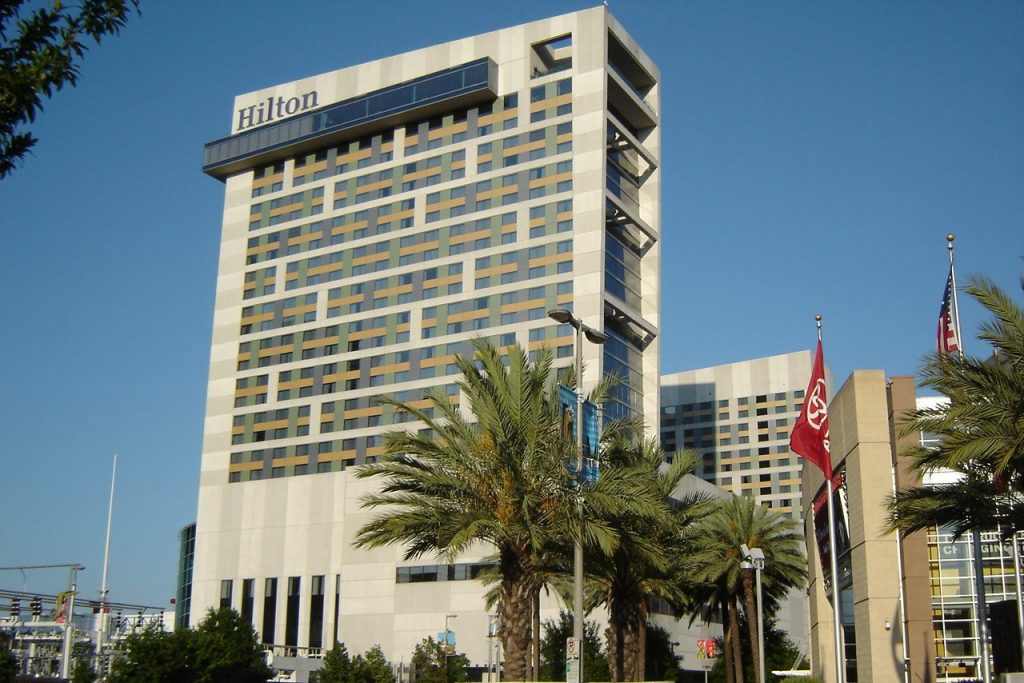Hilton's Diversity Strategy Underscores Recruiting Efforts in a Time of Deep Job Cuts

Skift Take
Coronavirus survival mode doesn’t mean losing sight of diversity and inclusion commitments, according to Hilton’s global head of diversity and talent.
Hilton is navigating through the worst year in its 101-year history, as the coronavirus-related implosion in travel demand forced the company to lay off roughly 22 percent of its corporate workforce last month. Jon Muñoz, the company’s vice president of global diversity and inclusion, was part of the job cuts.
But while Hilton is battling an economic and public health crisis, Black Lives Matters protests across the world compel leaders to address systemic racism.
It is undoubtedly poor timing for Hilton to eliminate a position tied to diversity and inclusion, even during a terrible year for travel. But Hilton Chief Talent Officer Laura Fuentes argued Muñoz’s departure shouldn’t be seen as Hilton turning its back on such important issues.
“We were facing extraordinary challenges as a company and had to make heartbreaking decisions around our corporate workforce given the impact this crisis has had on our hotels and hotel team members,” Fuentes said. “As we looked to that and wanted to maintain our commitments to diversity and inclusion across the company, we looked to a specific role within [human resources] and felt that we could put a greater emphasis even by combining it and expanding the scope that the person leading diversity and inclusion would have.”
Hilton’s consolidated vice president of diversity, inclusion, and recognition position is now part of the human resources department, where ongoing initiatives can be amplified, Fuentes added. DeShaun Wise Porter, who has worked in Hilton’s HR department for nearly five years, began in the role on July 1.
While the position may be new, Hilton maintains there has not been a disruption in the company’s diversity and inclusion efforts during the pandemic. Fuentes has and continues to oversee these initiatives.
“This marriage of diversity and inclusion and recognition in our world is really meaningful and very strategic and can help us further imbed this work into one of the most important manifestations of our culture,” Fuentes said. “That’s really within the HR team, the stewards of the strategy to help connect the dots.”
Implementation and Development
Hilton’s continuing direction on diversity and inclusion focuses on talent and human resources.
But because of constrained resources, hiring and talent recruitment is now limited in the hotel industry during the pandemic, which many analysts expect will produce the worst year on record for global hotel businesses.
Hilton is "reverse recruiting" and advocating on behalf of its own furloughed and laid off employees to companies that are still hiring during the downturn.
But it is also keeping its traditional recruiting channels open for when travel demand returns. The goal is to provide a 50 percent diverse slate of candidates for all open positions, Fuentes said.
Hilton will continue to host diversity-focused events and partner with organizations like the National Black MBA Association, National Society of Minorities in Hospitality, and historically black colleges and universities to gain access to a wider talent pool.
“As we’re resetting our organization given the [recent changes], we need to reset where we are at, and we want to set even more ambitious goals than we had before,” Fuentes said.
A Wake-Up Call
Hilton generally scores high on corporate diversity and inclusion rankings, including Diversity Inc.’s Top 50 Companies for Diversity and the Human Rights Campaign’s Corporate Equality Index.
But the ongoing protests in the U.S. and around the world have been a wake-up call that companies like Hilton can do more. Despite the accolades it receives on diversity in some quarters, there are still no people of color on Hilton’s board of directors.
“Many of us are still in an unsettled state caused by COVID-19, but that should not stop us from doing our part,” Hilton CEO Christopher Nassetta wrote in an email to all Hilton employees last month. “At Hilton, we have Integrity: We strive to do the right thing all the time. And the right thing to do is to stand up to racism, bigotry and violence. Please listen to and learn from your colleagues who may be experiencing life in a very different way because they are different from you. Engage others with compassion and respect, even if their views vary from yours, in an effort to foster greater understanding.”
Economic crises tend to have a greater negative impact on individuals from underrepresented groups. An April survey from the University of South Carolina showed people of color, especially African Americans, were more likely to have lost their jobs during the pandemic.
Twenty-one percent of African Americans surveyed said they had lost their jobs compared to 15 percent of white people.
But there is more than an economic crisis happening in 2020, as the racial justice and equality protests spread around the world last month. Hilton has responded most directly to the Black Lives Matters protests through its Hilton Effect Foundation charitable arm.
The company announced several initiatives, including “further support” for the NAACP and the National Urban League with an undisclosed financial sum, compensation-tied leadership diversity targets that must be met by 2025, and expanding universal unconscious bias and respectful workforce training to all employees.
“We’re not just joining the party now. We’ve had that commitment long before we were recognized with these accolades,” Fuentes said. “We know the journey is not done by any stretch, so we’ll continue doing the work.”




